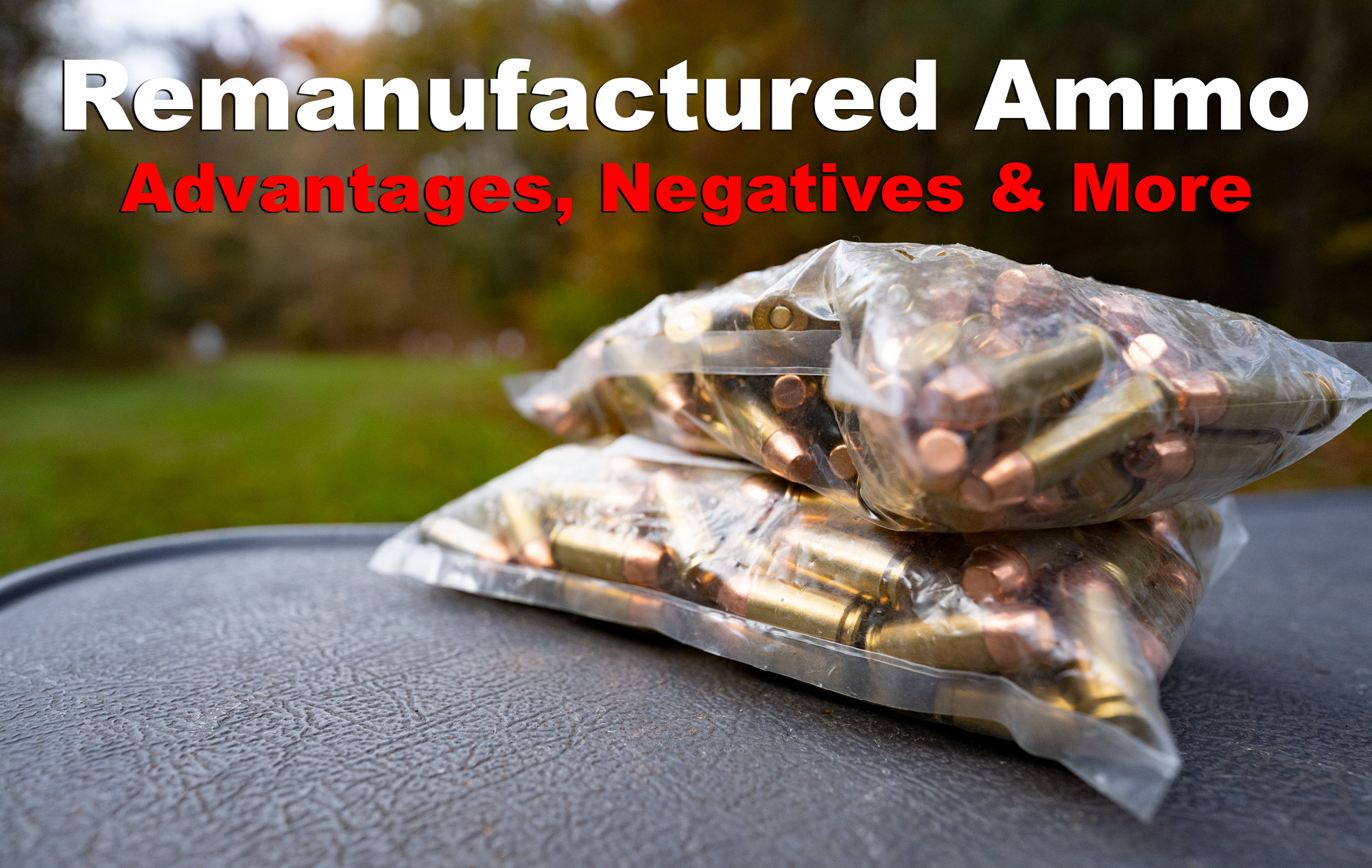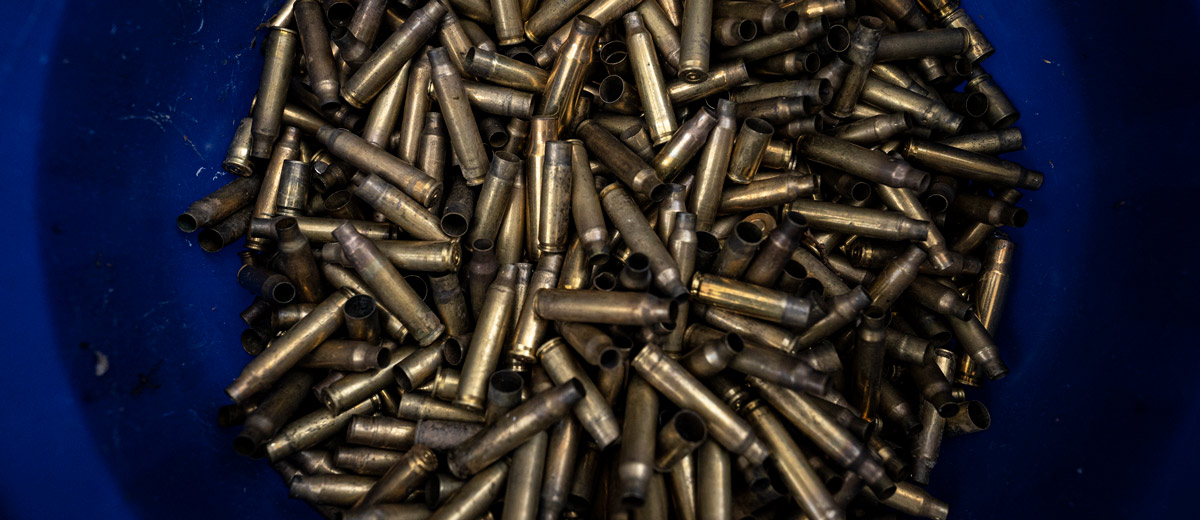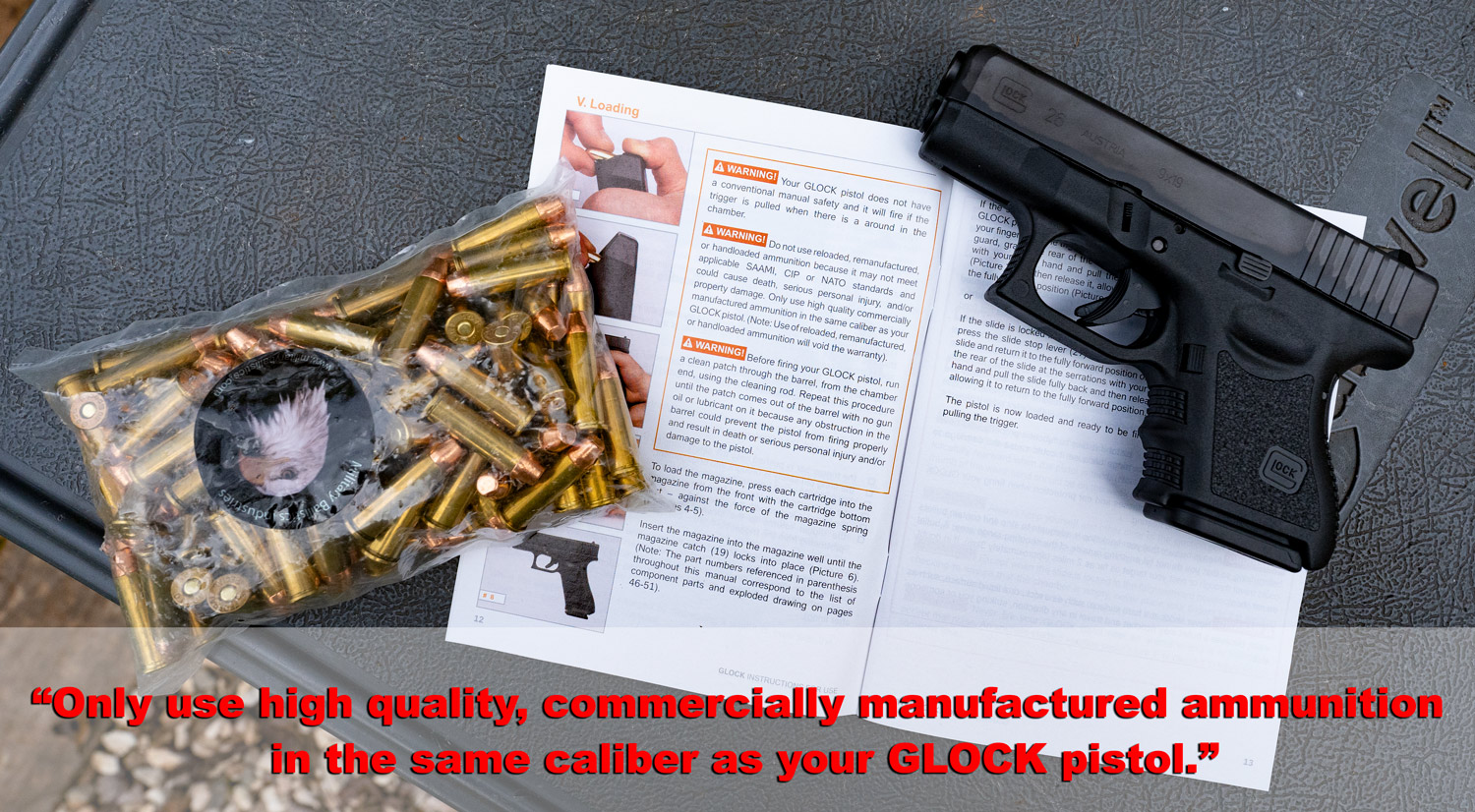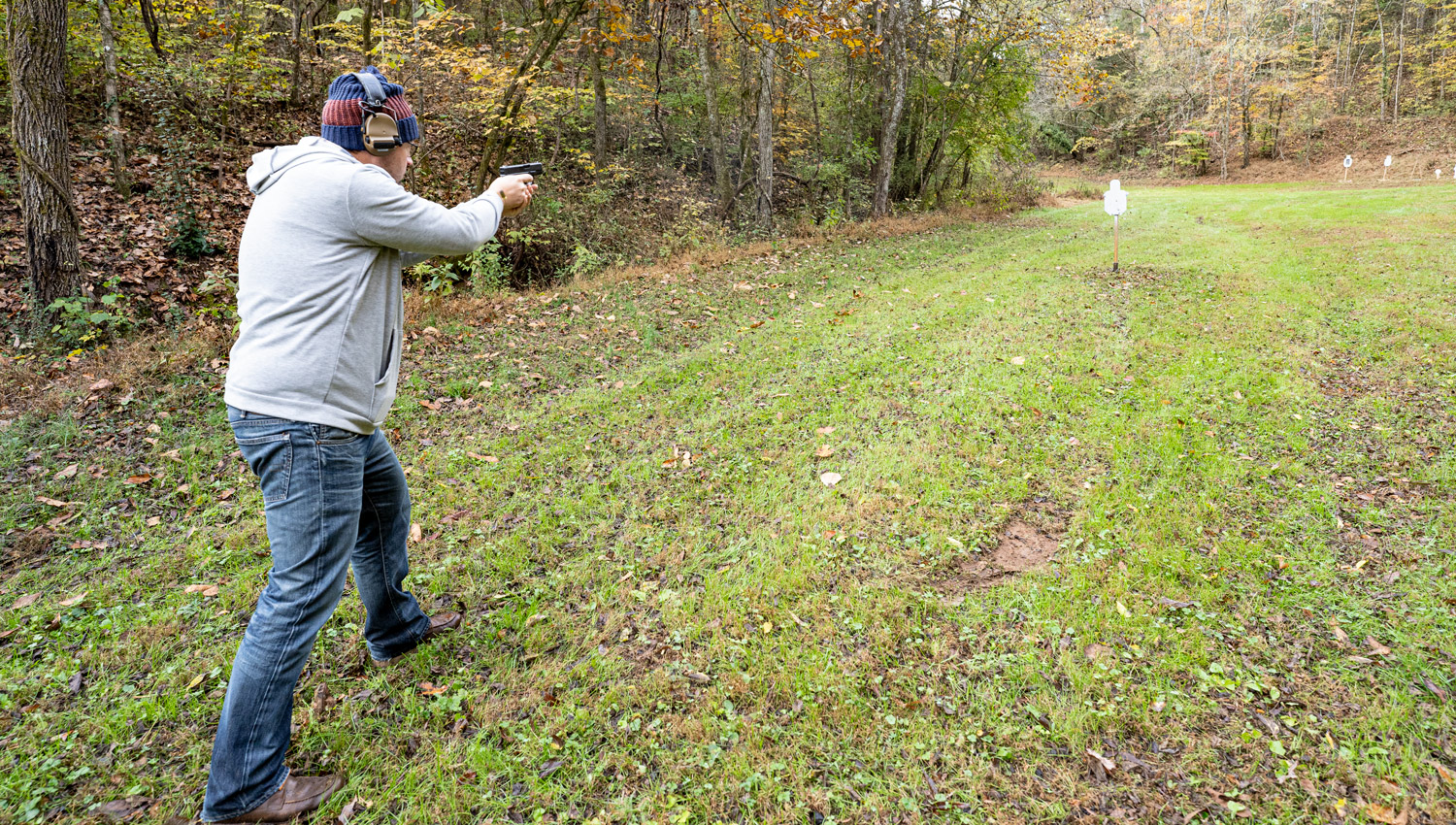A look at remanufactured ammunition – what is it, should you use it and how does it compare to other options like factory new ammo and reloaded ammo?
Remanufactured ammunition can help make your shooting hobbies more affordable. But, if you’ve looked at a few gun forums, you’ll find that these rounds, which reuse previously-fired brass, have a mixed reputation. Some claim we should avoid it like the plague. Other shooters say they have fired thousands of remanufactured rounds with no problems.
Is there really a drop in reliability and quality with remanufactured rounds? Do critics exaggerate the downsides of remanufactured ammo? Are the cost savings worth the possible risk?
The final choice is yours. In this guide, we’ll do our best to help you decide whether remanufactured rounds are right for you.
Your Guide to Remanufactured Ammo
What is Remanufactured Ammo?
We need to make sure we have our terms defined, as it’s easy to confuse remanufactured ammo with similar products. By “remanufactured” ammunition, we mean rounds made with used brass that are refitted with primers, propellant, and bullets in an industrial manufacturing facility. Remanufactured ammo is made with commercial equipment in a factory (often a small-scale, local factory, but a factory nonetheless), and adheres to precise specifications set by the Shooting Arms and Ammunition Manufacturing Institute (SAAMI).
What is Reloaded Ammo?
While shooters often interchange the terms reloaded and remanufactured, reloaded ammo generally means rounds that have been refitted by a personal hand-loader. They usually do this in a private setting, such as their own shop. One way to think of it is that a company remanufactures, while an individual reloads.
Advantage of Remanufactured: It’s All in the Pricing
Plain and simple: the reason that people select remanufactured ammunition is pricing. How much you save will depend on the remanufactured product you buy compared to the factory-original product you would have bought. But it’s safe to say that, over the course of shooting thousands of rounds, you can save hundreds of dollars.
What’s the Worry?
If you’ve purchased a new firearm and looked over the manual, you’ll find an extensive list of terms, definitions, instructions, and legal wrangling. One of the bits you’ll find in most manuals is a section stating that the use of remanufactured ammunition will void that warranty. That’s right; if you have a new gun with an existing warranty, using remanufactured ammo will likely void the warranty.
We see this from companies like Glock. In their owner’s manual for 9mm Luger Models G17 – G 48, you’ll find a section that reads “Do not use reloaded, remanufactured, or handloaded ammunition.”
Glock explains it may not meet certain standards, particularly CIP or NATO standards. At the end of page 12 on their Glock 26 manual, there is a short sentence that says, “Use of reloaded, remanufactured, or handloaded ammunition will void the warranty.” They repeat the same warning on a second page in the manual too.
So why be so concerned about remanufactured ammo? The concern has a lot to do with the quality of the casing after a firearm fires and ejects it. There is a legitimate concern that once a firearm fires and expels the brass from a weapon, the casing’s quality drops. It may have been scratched or deformed. Any slight change could impact how the round performs from the magazine to the chamber and out the ejection port. There is also a concern that lingering residue could disrupt how the round performs.
However, remanufactured ammo goes through an extensive process that brings it to SAAMI standards. At least in theory, remanufactured ammunition meets the same requirements as new ammo, although there are still concerns.
Should You Consider Remanufactured or Reloaded Ammo?
Most remanufactured ammunition tends to be reliable. Many shooters happily purchase these rounds, we can’t say that these rounds are for everyone.
First of all, if you have a brand new gun that has a warranty, you’ll likely want to avoid using remanufactured ammunition. Most manufacturers, as we discussed, insert language in their owners manuals and legal forms that void a warranty if remanufactured ammo is used. This is really a precaution from manufacturers; most remanufactured ammo is fine, but these steps protect them in case a gun owner uses rounds that are low quality.
Can You Use It For Defense?
Anyone who uses their firearm for personal defense will likely shy away from remanufactured ammunition. This is not to say that you can’t protect yourself with remanufactured rounds; you certainly can. But reliability in self-defense ammo is critical. Therefore, many gun owners avoid remanufactured products for their conceal-carry and home-defense purposes. Frankly, the cost savings of a few pennies per round isn’t worth the additional risk of a failure to fire versus new ammo.
High-level competitors often avoid remanufactured ammunition, at least for an event. These shooters work hard, practice relentlessly, and expect only the best from their equipment. They may practice with remanufactured rounds, but they rarely use them on event day.
So when should you use remanufactured rounds? For most gun owners, casual shooting, target practice, drilling, and plinking are the time for remanufactured ammunition. In this less-than-critical setting, where a misfire or a jam is not a life-threatening problem and won’t ruin a high-stakes competition, you can likely use remanufactured rounds and enjoy relative success.
Any budget-minded shooter will appreciate remanufactured rounds. As we discussed, in hot ammo markets you can save hundreds of dollars over 1,000 rounds or less. This makes your shooting hobby far more affordable. This, for many gun owners, is the motivation for using remanufactured cartridges.
Finally, if your gun has no warranty, you may be more comfortable using this type of ammunition. While problems can always occur, at least with a non-warrantied gun you don’t lose the financial protection that you had with a warrantied weapon. (You can’t lose something you never had!)
Consider Manufacturer’s Reputation and Your Own Comfort with Risk
Before spending money on remanufactured rounds, research the manufacturer. You’ll want to make sure they have a strong reputation for quality, reliability, and consistency. Most companies are consistent, but you need to do your research to ensure a high-quality product.
You’ll also want to consider your own personal comfort with the risk that comes from using remanufactured ammo. If a particular brand has a reputation for lower quality and less consistency, you’ll want to consider that before making the purchase.
Get the Rounds You Need for All Your Shooting Sports
If you need high-quality remanufactured or factory-original rounds, visit ammotogo.com. We have a full selection of top-quality cartridges for handguns, rifles, and shotguns, all at a price that fits your budget!




